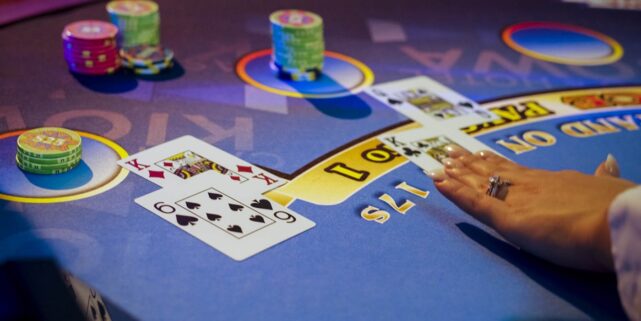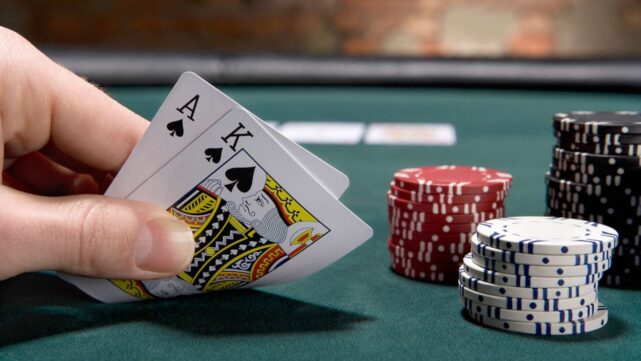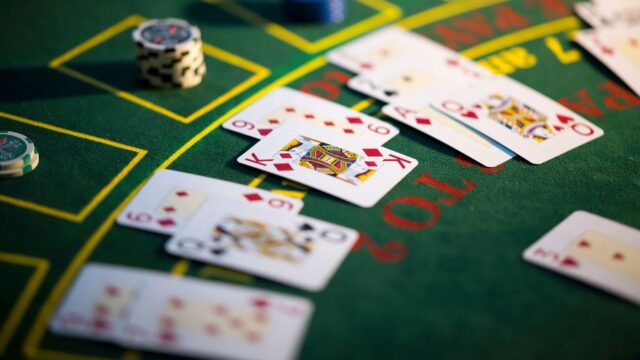The tactic of card counting frequently evokes visions of dramatic high stakes games and covert wins in the bright world of casinos. Card counting is a tactic employed mostly in blackjack to ascertain if the next hand would probably give an advantage to the player or the dealer. It was made popular by Hollywood blockbusters and infamous gambler stories. Is card counting still a viable tactic in light of contemporary casino procedures and technological advancements, or has it become a thing of gambling folklore?
The Basics
To keep track of the ratio of high cards to low cards remaining in the deck, card counting is a blackjack technique. The player usually benefits more from high cards (10, Jack, Queen, King, Ace), as they increase the likelihood of obtaining a “natural” 21 and result in larger prizes. The idea is simple: as cards are dealt, maintain track of which cards are dealt, and utilise this information to modify your wagers.
It is not unlawful to count cards, despite what many people think. Since casinos are private establishments, they have the authority to ban players they believe are counting cards to obtain an edge. Ethically, people disagree. While some see it as a lawful approach that makes use of memory and talent, others see it as a kind of cheating.
Modern Casino Measures Against Card Counting

To combat card counting, casinos have employed several countermeasures. Advanced surveillance systems with facial recognition, such as those offered by kakekmerah4d.store, can track and analyze player behavior more effectively than ever before. Additionally, automatic shuffling machines are used to shuffle the cards more frequently, disrupting the card counter’s ability to maintain an accurate count. This integration of cutting-edge technology from kakekmerah4d alongside traditional security measures underscores the industry’s commitment to maintaining fairness and integrity in gameplay.
Casino staff, including dealers and floor managers, are trained to recognize the behavioral cues associated with it. These can include betting patterns and extreme concentration on the cards. Once suspected, counters may be distracted by staff interaction, have their deck shuffled more frequently, or even be asked to leave.
The Role of Technology
Some card counters have resorted to technology in response to contemporary issues. Although the legality of the various software applications and tiny electronic gadgets designed to assist in counting is more obvious—using them in casinos is prohibited and can have serious repercussions—their use is nevertheless discouraged.
The environment of card counting has changed with the emergence of internet casinos. Conventional counting methods are rendered useless by the use of random number generators in the majority of online blackjack games. While some live dealer formats might permit it, the benefit is negated by the frequent use of half-shoe deals or constant shuffling.
The Realities of Card Counting Today

Although most people can pick up the fundamentals of card counting, it takes a significant amount of skill to use them efficiently when distracted and under the close observation of casino security. Additionally, the edge obtained is usually negligible—typically only around 1%—meaning that significant effort and capital are needed to realise meaningful profits.
In addition to being skilled at the fundamental method, the modern card counter also needs to be skilled at dodging detection. This could be collaborating with others or creating novel, less obvious techniques. Future developments in this never-ending game of cat and mouse are probably in store for both these tactics and casino defences.
Adapting Strategies
Using teams is one way the domain has adapted. Teams can lessen the possibility that any one member will be discovered by casino monitoring by assigning duties to multiple players, with one person counting cards and others placing large bets when the count is favourable. The MIT Blackjack Team is well-known for using this strategy to win millions of dollars from casinos in the 1990s through well-coordinated efforts and careful planning.
Apart from cooperating with one another, card counters are always creating novel ways to evade detection. Shuffle tracking and ace sequencing are a couple of these that make an effort to forecast the cards’ order during the shuffle. Even though these strategies need more expertise and repetition, they present fresh opportunities to obtain an advantage as casinos continue to improve their defences.
The Ethical Dilemma

At the heart of the debate over it lies an ethical dilemma: is it justifiable to use your intellect and memory skills to beat a system, or is it an unfair advantage akin to cheating? Casinos argue that card counting threatens the integrity of gambling games designed to produce a profit for the house. Counters, however, assert their right to use their brains as they see fit, especially since they’re playing within the rules of the game.
The public’s perception has been largely shaped by the media, which often glamorizes the practice as a David vs. Goliath battle where the underdog beats the big casino. However, the reality is more nuanced, with ethical considerations depending on one’s views on gambling, fairness, and the use of intellect in games of chance.
The Future of Card Counting
The strategies used by casinos to discourage card counters follow technological advancements. Card counters are finding it harder and harder to make a living because to innovations like facial recognition software, more advanced shuffling equipment, and real-time betting pattern analysis software. Counters will probably keep coming up with creative methods to modify their tactics in response.
Although the future is unknown, it is most certainly going to be defined by an ongoing arms race between the card counters’ changing tactics and casino security systems. Even while there is less time to engage in traditional card counting, the excitement of outsmarting the system will undoubtedly encourage new generations to give it a shot.
Conclusion
In summary, counting cards in contemporary casinos has become a more difficult task that calls for a high degree of expertise, a risk tolerance, and an adaptable strategy, even though it’s still not impossible. Even when casinos come up with new strategies to safeguard their earnings, the appeal of beating the house edge never goes away for those who are prepared to put in the time and work. It continues to be an intriguing part of casino gaming lore, whether it is viewed as a means of winning or as an intriguing facet of gambling culture.




